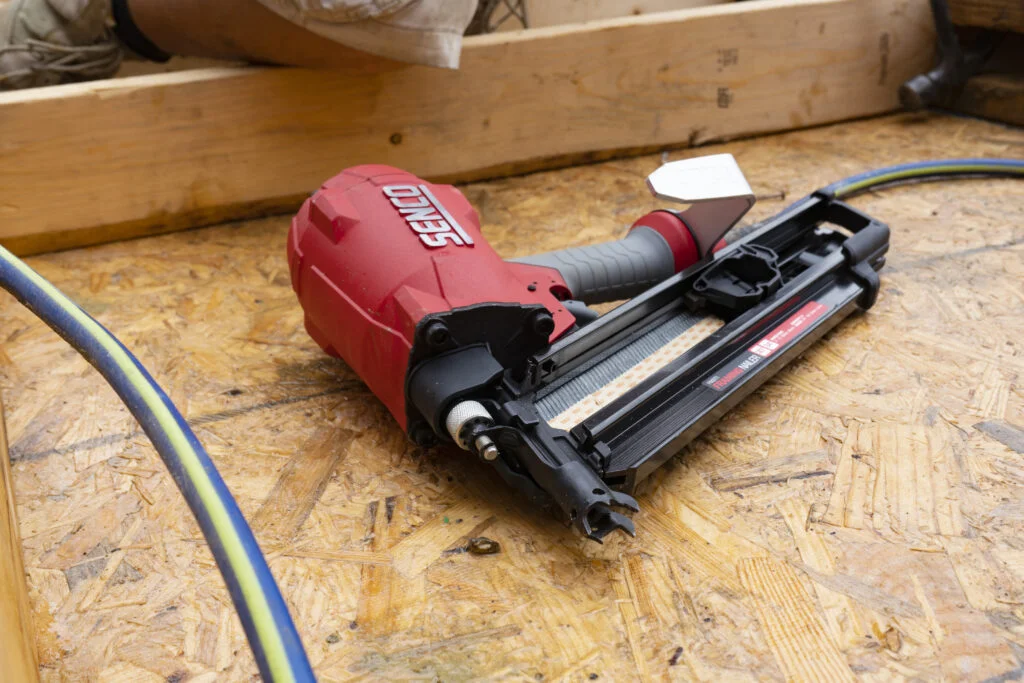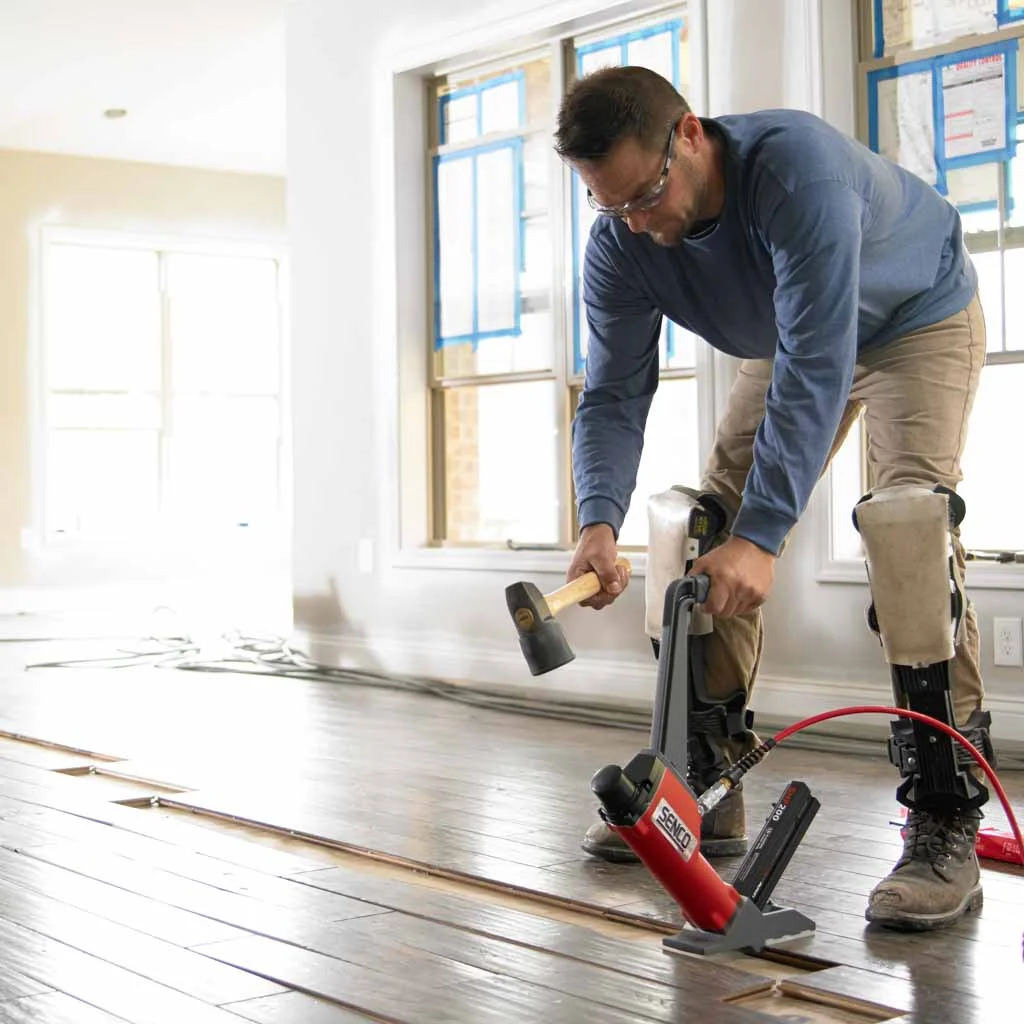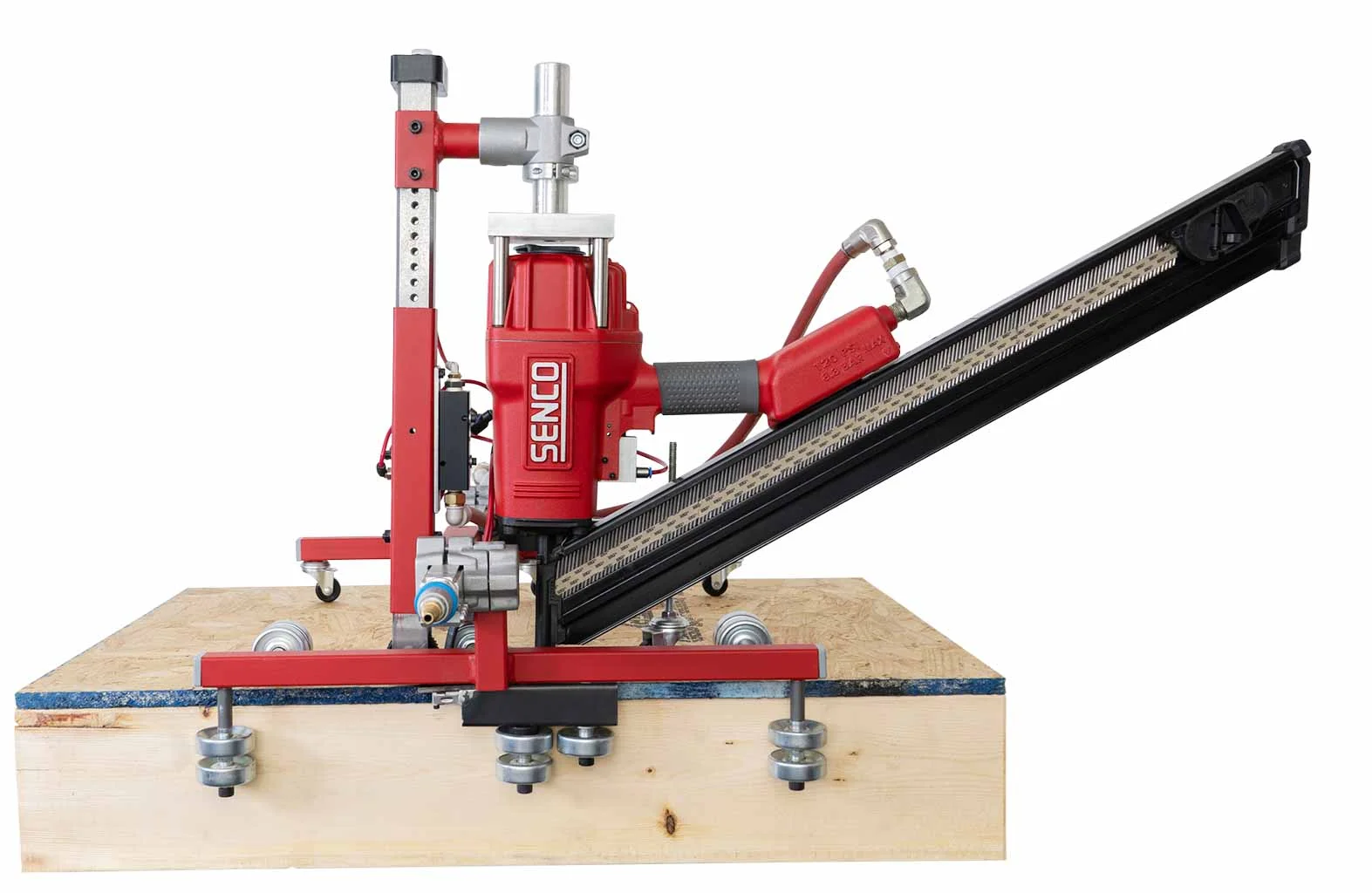How to Research and Purchase a Nailer That’s Right For You

Browsing Nail Guns For Sale? Read This Nailer Buying Guide.
Pneumatic nailers are versatile, dependable tools that have been making the lives of contractors and woodworkers easier and more productive for more than 70 years. However, there is no one-size-fits all nailer. If you’re planning to buy a nail gun, you need to make sure it’s the right one for the job — and for your personal needs. Here are a few tips to help you evaluate which nailer is best for you.
KNOW HOW MUCH VERSATILITY AND POWER YOU NEED
Obviously, the first step in figuring out which nail gun to buy is knowing what job you need to use it for. There are many different types of nail guns, most of which are designed to excel at one specific type of task. However, beyond its primary job, you’ll want to consider whether you have any secondary tasks for the nailer. For example, framing nailers are primarily used for stick framing, but they may also be used for subfloor installation, siding, decking, fencing or crate assembly. However, nailers that are designed for siding or fencing may not have enough power, or might not shoot long enough nails, for framing.
Speaking of power, consider what type of material you will be fastening. Historically speaking, the larger the nail, the more powerful the nailer. However, recent material innovations such as engineered lumber are a complicating factor when predicting whether standard nailers are powerful enough. Standard framing nailers might not produce enough power to sink nails in this ultra-dense material, so look for even more powerful nailers such as SENCO’s new, built-in-the-USA FN91T1.
Once you evaluate the types of jobs and materials you need to tackle, you are ready to begin your search.
MOST COMMON TYPES OF PNEUMATIC TOOLS
- Pin Nailers – These small-body nailers shoot fasteners about the size of sewing pins. They are ideal for highly intricate woodworking and trim applications.
- Brad Nailers – The 18-gauge nails fired by brad nailers offer more holding power than pins, but still create small holes that are easy to fill and cover.
- Finish Nailers – These versatile, medium-body nailers are the most common for finish and trim work, assembly, and DIY tasks.
- Roofing Nailers – These large-body nailers shoot smooth-shank nails with broad, flat heads to attach roofing shingles. These nails are designed to be removable for roof replacement.
- Siding Nailers – Like roofing nailers, siding nailers often have a drum magazine that holds hundreds of nails. Siding nails are designed to be harder to remove than roofing nails.
- Framing Nailers – These large-body nailers are designed to fire 2” to 3-½” framing nails. The average house requires 10,000 to 15,000 framing nails, requiring lots of power and durability.
- Staplers – Pneumatic staplers are used in a wide variety of tasks, from upholstery to subflooring. Make sure local building codes allow the use of staples in rough construction.
Browse SENCO Nailers by Category
CORDED OR CORDLESS
The last thing to consider before researching is whether you would like a cordless nailer or a traditional pneumatic, which connects to an air compressor. You may think that the difference between corded and cordless nailers is power. However, this is not always the case. New cordless nailer technology like SENCO’s FUSION have closed the power gap — SENCO cordless nailers are just as powerful as their traditional pneumatic counterparts.
The primary difference is portability and power delivery. Cordless nailers are more portable, but the battery will need to be recharged after about 600 shots. Traditional pneumatic nailers trade power management for hose management. They need to be within reach of a compressor hooked up to an electrical outlet or generator.
Learn Which Jobs Require Corded Nailers
WHERE TO RESEARCH
Start by visiting the websites of the nailer brand you are interested in. Websites are valuable resources for learning about the breadth of the products offered by any company. Well-designed websites will allow you to sort nailers by jobs, compatible fasteners, and more. It should also be easy to find technical information relating to power, features, and serviceability. You can also research the company history — companies that have been in business for a long time typically have a good reputation among generations of contractors.
When looking for third-party reviews, it is best to start with a nailer already in mind so that you are not overwhelmed by reviews. Instead of searching for “framing nailer review,” you will find more applicable reviews if you search for “FN91T1 framing nailer review,” for example. You may find reviews on blogs, tool websites, YouTube videos, and print-publication websites. Additionally, you may consider following credible tool and construction influencers on social media for recommendations and ideas.
WHERE TO BUY
You can purchase nailers at hardware stores – both big-box and local dealers – or purchase online. Each has unique strengths.
Local Hardware
Local hardware and materials stores typically carry the most reliable brands and several varieties of nailer. Most stores have sample units that you can handle to get a feel for weight, balance and build quality. Additionally, local hardware stores are more likely to be knowledgeable about the job you do and the tools on the shelf. Some local dealers also act as service centers, making it easy to get your nailers serviced or repaired.
Big Box
Large hardware stores have a good selection of nailers, but don’t always carry the widest selection of brands. If you need a nailer off the shelf quickly without researching brands and benefits, big-box stores get you up and running fast. Like local stores, you can generally handle nailers before you buy.
Online
Online is a great option once you have researched and decided which brand and model of nailer you need. There are plenty of purchasing options and occasional discounts to be found. However, you cannot handle the tool before you buy. Shipping time can be a factor if you have a job starting quickly.
ONE LAST THING
Thinking of buying used? Used nailers from trusted brands may provide a good value upfront. However, new nailers will generally come with a warranty, and you will have better access to customer support and service. If you’re thinking of buying a used nailer, make sure that parts and service are still available for it. All nailers eventually require servicing, and you want to make sure you’re able to keep your nailer working long term.

